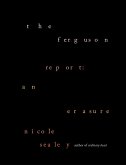From Whiting Award-winner Rickey Laurentiis, a mythic, lyric, decade-in-the-making new collection of masterful poems that probe the meanings of trans/formation and re-creation, a new classic about gender and love When Rickey Laurentiis debuted in 2015 with Boy with Thorn, the poetry world heralded the arrival of an astonishing new lyric talent. "Call Rickey Laurentiis' stylistic range virtuosity or call it correctly, necessity," Terrance Hayes wrote. In the past decade, as Laurentiis has transitioned, her ideas of the lyric and poetry have transformed, as has the America in which she lives. This staggering, irreverent, gentle, and erotic book is a record of that ten-year journey. It draws on, expands, and then fractures the many poetic traditions which informed Laurentiis's poetics-from Greek odes and early Black Spirituals to the work of Whitman and Dickinson and the mid-century cinematic icon The Lady Chablis. Then, brick by brick, she builds them anew and makes them her own. She maps a path onto the contradictions, precarity, and revelry of her hometown, "New Orleans / As that modern text, witnessed, and revised, by the light as radically / As by the water, which is history, which slip / Thru your hands. This city is a ghost for hire." With this as her frame, Laurentiis meditates on what it means to be trans and Black in this nation and in her own body, when both demarcations are often excuses for violence. She goes further, examining pleasure and deep-felt pain, in a rhythmic, wild embrace of life, an act of spirit work and self-grace. "You see something in me," she writes, "something grand, / Your very cowardice yearns for; you / Who would want to own it, wear it, be by it adorned, / It is so rare a thing, so fine as I am, and seemingly / Fragile, creole, and easily decadent: it is like a tree, then." In a world where what one is, and how one looks, or even just the idea of a person can get one killed, this is transformative work. This collection does not stump for its humanity, nor does it compromise its art in order to speak in its own voice. Sprung to its own sound, celebratory without apology, this is a book which reclaims the act of poetry itself, too, for the way it can reshape the writer, the mind, the body, the story we choose, and the images the world can imprint on us. (Can poetry do that?) Approaching from every angle and expanding in every direction as we read, Death of the First Idea probes every aspect of transformation. Celebratory, interrogatory, reclamatory, full of rage and range, these are poems for the storms of our time.
Dieser Download kann aus rechtlichen Gründen nur mit Rechnungsadresse in A, B, BG, CZ, D, DK, EW, E, FIN, F, GR, HR, H, I, LT, L, LR, NL, PL, P, R, S, SLO, SK ausgeliefert werden.
Hinweis: Dieser Artikel kann nur an eine deutsche Lieferadresse ausgeliefert werden.









